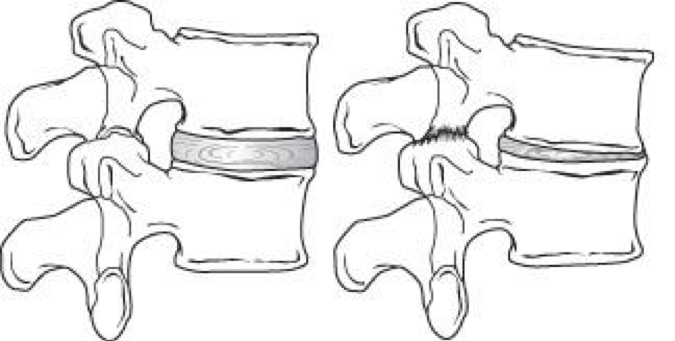Myelopathy
What is Myelopathy?
Myelopathy is a broad term for a dysfunction in the flow of nerve signals through the spinal cord due to an injury or condition that results in compression of the spinal cord. Myelopathy is a serious, incapacitating condition that must be treated to maintain your quality of life and prevent the dangerous deterioration of the spinal cord.
What causes Myelopathy?
The most frequent cause is degenerative disease of the spine from bone spurs and herniated discs. Commonly degeneration is due to osteoarthritis but can also be caused by Rheumatoid Arthritis.
Other conditions that cause or contribute to myelopathy include:
- a traumatic spine injury
- thickened spine ligaments- ligaments hold your spine together can thicken and bulge into the spinal canal with age
- infection, tumors, neurological diseases and congenital conditions.
In older people, myelopathy is a result of a spontaneous course of degeneration that provides periods of stability followed by periods of deterioration.
Symptoms
Symptoms arise from the interruption of the normal flow of nerve impulses through the spinal canal. Myelopathy symptoms are a warning that requires urgent medical evaluation. Symptoms depend on the location of the compression.
- In the lower spine (lumbar spine) it can affect the gait and balance, and bowel and bladder function.
- In the neck (cervical spine) the symptoms include changes in fine motor skills like dexterity and grip strength, changes in handwriting, dropping of items, difficulty buttoning clothing and other fine motor skills. Weakness and numbness in the hands and arms, loss of balance and coordination and neck pain.
Nerve roots impingement are impinged, it is called Radiculopathy. The nerve roots are the nerves that exit the spinal cord. It can affect the arms or the legs. Symptoms of radiculopathy include pain, weakness, and changes in sensation that affect the ability to maintain balance or affect arm use.
Types of Myelopathy
Myelopathy can occur anywhere in the spine. The most common location is in the cervical spine.
Cervical Spondylosis
Cervical Spondylosis is the most common disorder of the cervical spine in people older than 55. This condition is present in 90% of individuals over the age of 70. Most commonly cervical mylopathy is caused by degeneration of the spine from wear and tear. Spondylosis is another term for arthritis.
As we age the discs lose water and collapse which leads to a loss of height and narrowing of the disc space. The body responds by forming bone spurs in an attempt to support the spine. But these bone spurs cause the spine to stiffen, and narrow the spinal canal compressing the spinal cord.
When a disc is worn and torn due to age, the inner jelly-like core can bulge out into the spinal canal and compress the spinal cord of the nerve roots. A herniated disc can occur from lifting, pulling, bending and twisting movements.

A normal spine and spinal stenosis
Diagnosis
Your Ortho Illinois orthopedic surgeon will conduct a complete physical exam and order imaging tests like x-rays, MRI and CT scans. Arthritis is evident on x-ray by age 40. By age 60-65 95% of men and 70% of women will have degenerative changes but may have no symptoms.
Treatment for myelopathy
Nonsurgical treatment
Over the counter pain medications, physical therapy, stability and mobility exercises, heat and cold treatments.
Epidural injections
Epidural injections of steroids may be used for diagnostic purposes, or for treatment of pain and inflammation.
Surgery
When the symptoms get worse, surgery is the best option. The goal of surgery is to decompress the nerves. It may involve removing a piece of bone or part of a herniated disc to relieve pressure and create more space for the spinal cord. New minimally invasive decompression techniques are available to reduce the damage to surrounding tissue which means recovery is faster and reduced hospital stays.
At Ortho Illinois we offer science-based protocols that emphasize the best non-surgical treatment options to restore function and avoid surgery. When surgery is unavoidable our fellowship trained spine specialists Drs. Braaksma, Stanley, Broderick and Alexander have the skills, training and experience to address herniated discs.
Ortho Illinois is a Regional Spine Care Center with offices in Rockford, Algonquin, and Elgin, Illinois. Call us and schedule consultation to get an accurate diagnosis and the least invasive, least aggressive options to relieve your pain.

